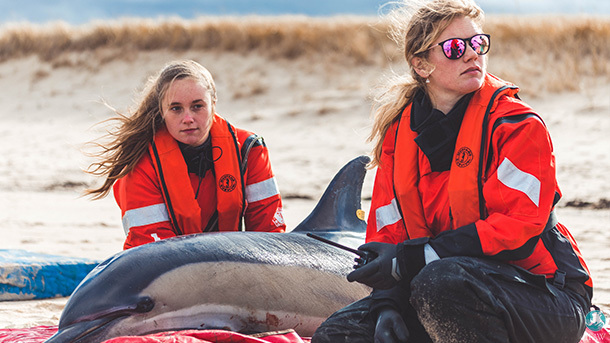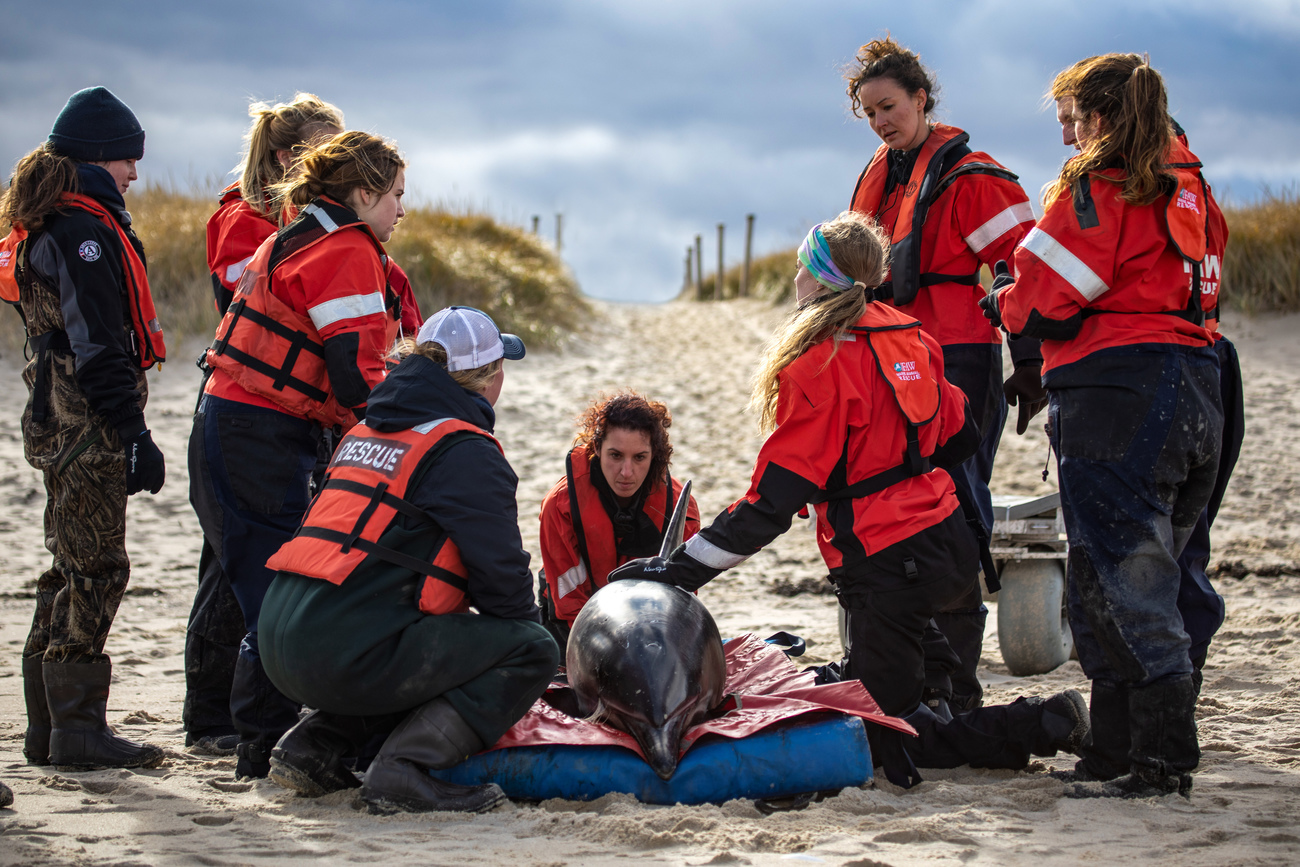celebrating marine milestones as we reach our 5000th response
celebrating marine milestones as we reach our 5000th response

I remember my first mass stranding response. On November 27th, 1998 our team responded to three dolphins stranded in Chipman’s Cove in Wellfeet, MA. It was incredibly cold and the edge of the water was becoming slushy. We did our best to rescue the animals, but we didn’t know as much back then. In the end, one animal died, one was humanely euthanized, and one was released (but later re-stranded and was found dead). We knew we had all done our best, but it was a hard day.
Yesterday, November 27th, 2018, twenty years to the day, we found ourselves back in Chipman’s Cove responding to four live stranded common dolphins. But, this was an amazing day! By utilizing all that we have learned from each stranding event over those twenty years, we were able to assess the health of the animals and determine that they were healthy enough to release. All four were released together (a key part of the rescue process), one with a satellite tag which will help us track the animal’s location and determine if it is surviving and behaving normally. I cannot express how proud I am of this major achievement and all of the other incredible advances we have made together over the past two decades.
I first started working closely with IFAW when I began my position at the newly formed Cape Cod Stranding Network in 1998, of which IFAW was a founding member. We were a small nonprofit with only two full time staff, one part-time veterinarian, an old truck, and a small group of volunteers. In July 2007, the Cape Cod Standing Network officially merged with IFAW to create what we now call the Marine Mammal Rescue and Research (MMRR) team.

Today, our MMRR team has six full-time staff members, one full-time veterinarian, one part-time veterinarian, two apprentices, multiple interns, and a highly trained corps of 224 volunteers. We are dedicated to rescuing stranded marine mammals on a 700 miles stretch of coastline on Cape Cod and southeastern MA — a global mass stranding hot spot. Along with our daily work on Cape Cod, our marine mammal experts often travel across the globe to countries such as India, Oman, and New Zealand to host trainings and share our extensive research. Our local work and travels have enabled us to rescue an impressive list of 23 marine species, including minke whales, bottlenose dolphins, Risso’s dolphins, manatees, harp seals, gray seals, and harbor porpoises.
As we celebrate our 20-year anniversary and 5,000th animal response, I can’t help but feel immensely honoured to be a member of this amazing team and incredibly grateful for the support we receive from IFAW staff, volunteers, and supporters. After years of innovation and scientific research, we have increased our successful release rate of mass stranded dolphins from 3% in 1999 to now over 86% so far in 2018. Our team has pushed the boundaries of marine mammal rescue and developed new techniques that are advancing rescue and conservation efforts around the world. There is still much work to be done to safeguard the welfare of marine mammals in our oceans, but today we celebrate our victories and the four dolphins who received a second chance at life in the wild.

Related content
Our work can’t get done without you. Please give what you can to help animals thrive.